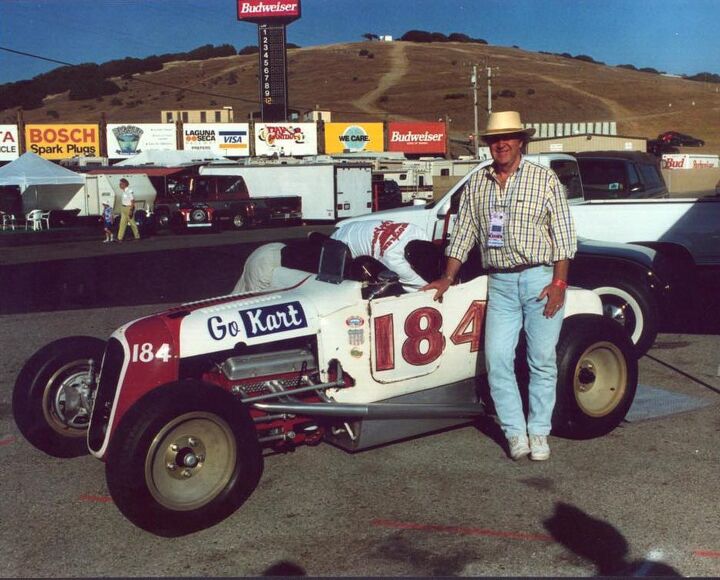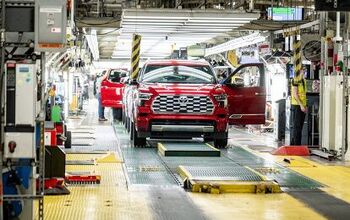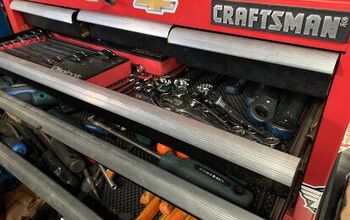Brock Yates, Larger-than-Life Driver and Journalist, Dies at 82

Brock Yates wore many hats during his enviable madcap life, and each one blew off as he pinned the accelerator to the firewall.
The longtime Car & Driver editor, racecar driver, brief TTAC contributor, author, restaurateur, television commentator, screenwriter, Cannonball Run founder and fierce critic of government regulations packed a burning passion for cars into every strand of his DNA.
Yates passed away yesterday from complications of Alzheimer’s. He was 82.
On the One Lap of America Facebook page, Brock Yates, Jr. posted, “Today, after suffering with Alzheimer’s for the last 12 years, my father finally succumbed. He touched many lives, but sadly no more.”
Born in Buffalo in 1933, Yates interest in automobiles and annoyance of the automobile industry compelled him to voice his opinions in print. Those columns led to a decades-long affiliation with Car & Driver.
No subject was off the table, and Yates carried the flag for a less corporate, less bureaucratic America. His free-wheeling vision of a life unburdened by red tape and regulations came across loud and clear in his writing, earning him the scorn of some environmentalists and safety advocates. It also won him a legion of loyal readers.
Ralph Nader? The man’s “ a pain in the ass,” Yates wrote in 1971. The federally mandated 55 mile per hour speed limit? It “made criminals of us all,” he claimed at the time.
To protest the Nixon-era fuel-saving measure, Yates famously created the Cannonball Run, aka the Cannonball Baker Sea-to-Shining-Sea Memorial Trophy Dash. That hare-brained scheme — a cross-country race where only crossing the finish line mattered — earned him the scrutiny of lawmakers.
Brock won that first New York to Los Angeles sprint, piloting a Ferrari 365 GTB/4 Daytona with co-driver Dan Gurney of Formula One and LeMans fame. His book Cannonball! documented the “hopeless illegality” of the race, which he completed in 35 hours and 53 minutes. The last of the five Cannonball Runs took place in 1979.
(Later, realizing there were limits to luck and government patience, Yates turned his focus to One Lap of America. The constantly evolving event kicked off in 1984.)
Despite all the grumbling about “laws” and “safety,” the Cannonball Runs inspired millions. It was rebellious, daring, and strongly libertarian (before anyone used that word) — a big, raised middle finger to The Man. And, if the public couldn’t have the real thing, why not watch it on the big screen? Enter Yates’ brief movie career.
As a writer and producer, Yates penned Smokey and the Bandit II (1980), The Cannonball Run (1981) and Cannonball Run II (1984). He later brought that motoring nostalgia to the dining scene, opening the Cannonball Run Pub & Restaurant in Wyoming, New York.
Yates continued railing against the many scourges afflicting the auto industry and came aboard at TTAC for a series of editorials in 2008. The man was truly larger than life, inspiring countless gearheads and closet rebels through his writing. He will be missed.
[Image: Facebook]

More by Steph Willems
Latest Car Reviews
Read moreLatest Product Reviews
Read moreRecent Comments
- Lorenzo Nice going! They eliminated the "5" numbers on the speedometer so they could get it to read up to 180 mph. The speed limit is 65? You have to guess one quarter of the needle distance between 60 and 80. Virtually every state has 55, 65, and 75 mph speed limits, not to mention urban areas where 25, 35, and 45 mph limits are common. All that guesswork to display a maximum speed the driver will never reach.
- Norman Stansfield Automation will make this irrelevant.
- Lorenzo Motor sports is dead. It was killed by greed.
- Ravenuer Sorry, I just don't like the new Corvettes. But then I'm an old guy, so get off my lawn!😆
- Lorenzo Will self-driving cars EVER be ready for public acceptance? Not likely. Will they ever by accepted by states and insurance companies? No. There must be a driver who is legally and financially liable for whatever happens on a public thoroughfare. Auto consumers are not afraid of the technology, they're afraid of the financial and legal consequences of using the technology.


































Comments
Join the conversation
Yes, I regularly read Car and Driver in the 1970s and 1980s. And, since then, too. But he was my favorite writer. His thoughts and ideas spoke to me. And, though I didn't purchase it, I read his book The Decline and Fall of the American Automobile Industry. Oh, and I liked that he had a Dodge Challenger, back in the day.
Always read Yates. We made it up to his yearly open house in Wyoming several times - I have autographed copies of a couple of his books. He'll be missed...